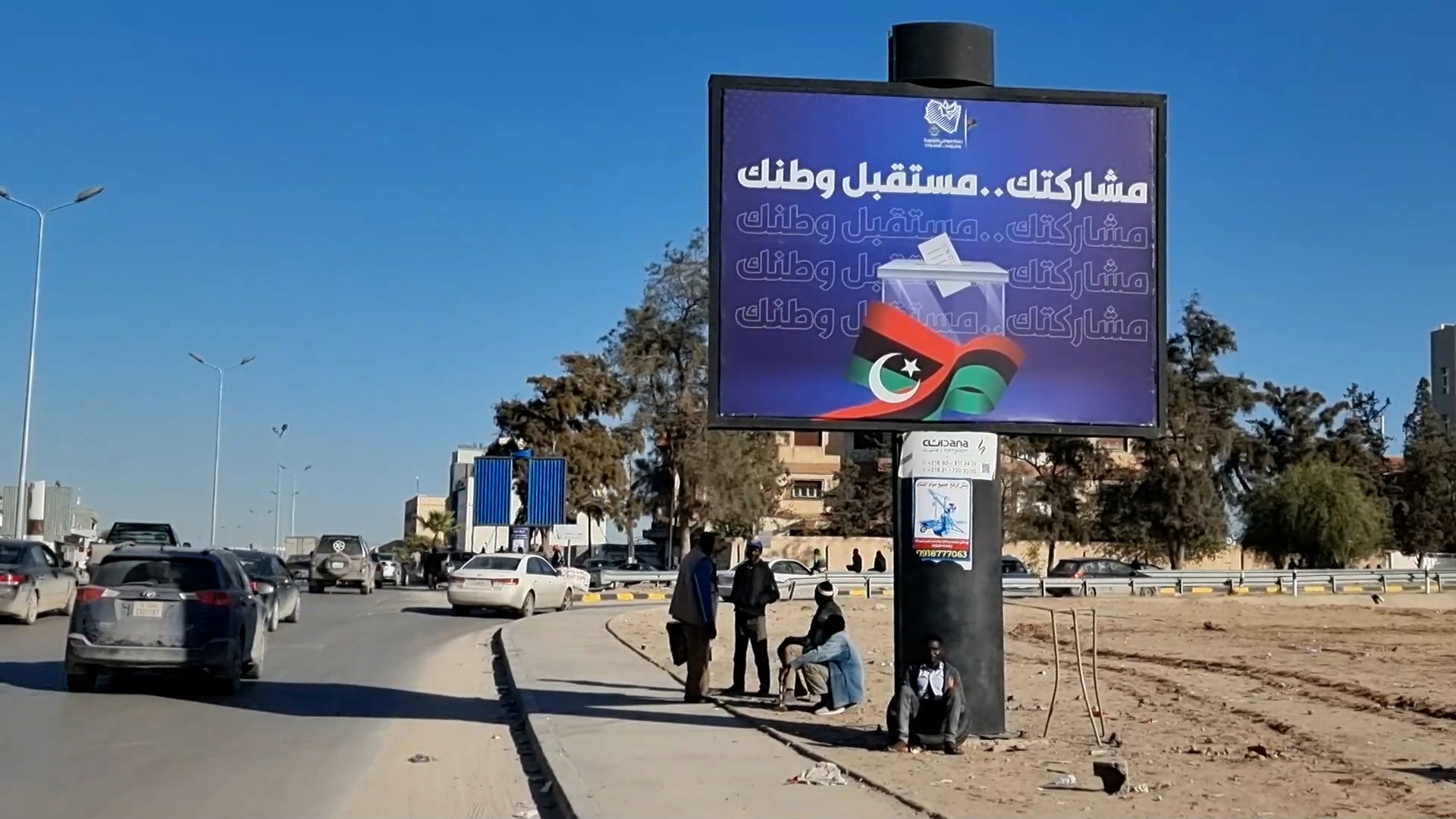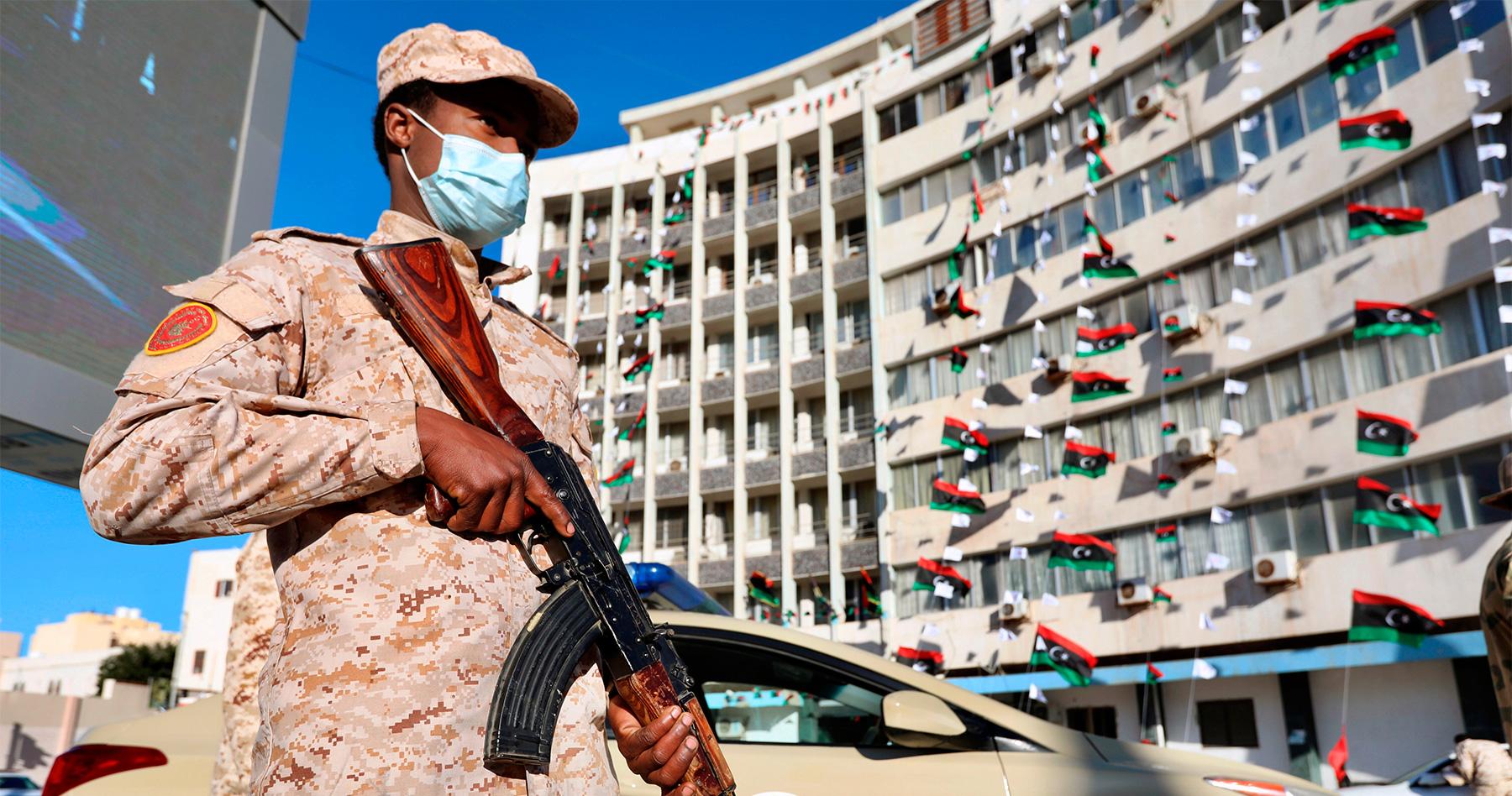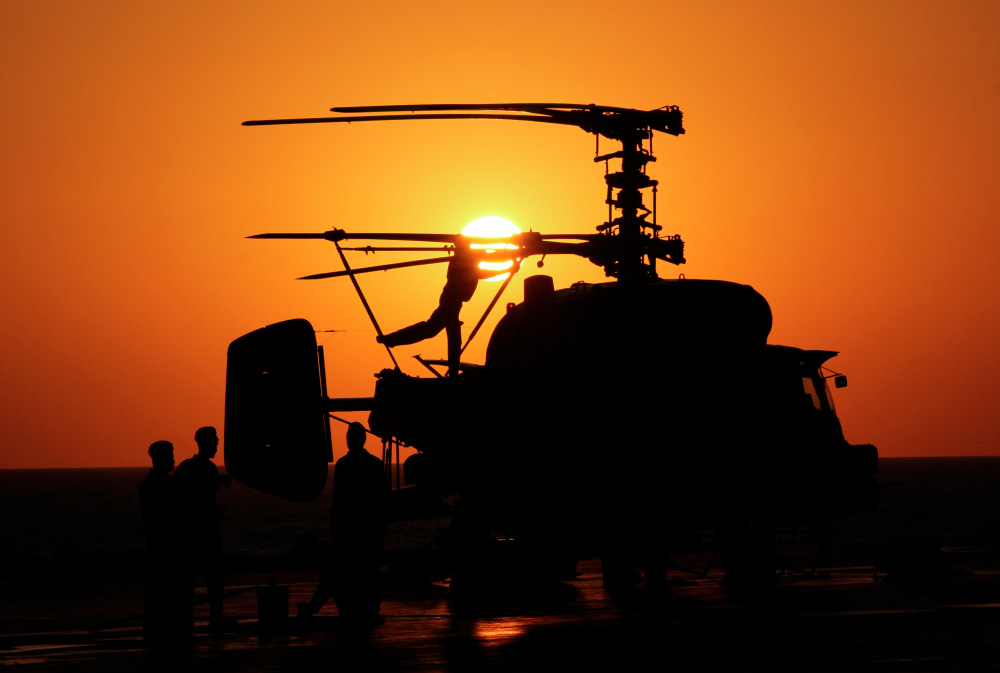For the Middle East and North Africa (MENA), late 2021 was supposed to herald the end of Libya’s domestic political chaos. The presidential election of December 24 was to bring an end to the drawn-out transition, stabilizing the situation—at least, temporarily—in a country that is still reeling after Muammar Gaddafi’s overthrow and assassination. However, two days before the voting took place, the head of the Libyan High National Election Commission issued a decree dissolving all poll commissions, citing legal, logistical and security concerns. As a result, all attempts made by the two main political groups to design constitutional framework for the prospective presidential elections ended in failure, with yet another duumvirate regime appearing in the country—Abdul Hamid Dbeibeh’s cabinet in Tripoli and Prime Minister Fathi Bashagha, who was appointed by the House of Representatives in the east.
What this new division of power between competing political forces in Libya actually means is that the country has no real leader and that the interregnum period is far from over. The disruption of the political process coupled with the uncertainty surrounding the elections and the structure of the Libyan government have caused the country to slip back into the interregnum, where there are no political forces in the country capable of consolidating the society and building power structures on a nationwide consensus. Grudges and distrust among the conflicting parties greatly increase the likelihood of Libya returning to the most violent phase of the Civil War, when the voices of politicians will be replaced by gunshots. And the global uncertainty as well as the divergent interests of MENA’s major players only make matters worse.
For the Middle East and North Africa (MENA), late 2021 was supposed to herald the end of Libya’s domestic political chaos. The presidential election of December 24 was to bring an end to the drawn-out transition, stabilizing the situation—at least, temporarily—in a country that is still reeling after Muammar Gaddafi’s overthrow and assassination. However, two days before the voting took place, the head of the Libyan High National Election Commission issued a decree dissolving all poll commissions, citing legal, logistical and security concerns. As a result, all attempts made by the two main political groups to design constitutional framework for the prospective presidential elections ended in failure, with yet another duumvirate regime appearing in the country—Abdul Hamid Dbeibeh’s cabinet in Tripoli and Prime Minister Fathi Bashagha, who was appointed by the House of Representatives in the east.
What this new division of power between competing political forces in Libya actually means is that the country has no real leader and that the interregnum period is far from over. At the same time, not only does the current situation define domestic and regional problems in the MENA region, but it also poses global challenges and threats (including of economic dimensions), which is especially important in the context of growing contradictions between the leading actors globally.
A Never-Ending Transition
Libya’s problems essentially come down to the inability of all those involved in the political process to establish effective mechanisms for the transfer of power to a legally elected parliament and president. This paralysis—in terms of establishing a single seat of power in the country—can be attributed to the problems setting out the requirements of eligibility for candidates in the first presidential elections and agreeing on when exactly they would take place. However, the country’s two main political forces managed to achieve an “unprecedented consensus” in Geneva in late June, at a two-day meeting between Speaker of the House of Representatives of Libya Aguila Saleh Issa and Chairman of the High Council of State Khalid al-Mishri. The sides reached mutual understanding on such issues as where the country’s executive and legislative bodies would be located, how seats in the two legislative chambers would be distributed, what areas of responsibility would be delegated to the various executive authorities, how the new boundaries of the provinces would be drawn, etc.
The disagreements on the requirements of eligibility for presidential candidates mostly concerned the backgrounds of potential applicants. According to Al Jazeera, the High Council of State insists that members of the military should not be allowed to run for presidency, which is a clear shot at the Supreme Leader of the Libyan National Army (LNA) Khalifa Haftar, a loyalist to the parliament who controls the country’s east. The uncertainty surrounding the new date for the election has already had a negative impact on the socio-political situation in the country, which had somewhat settled down once the Government of National Unity (GNU) was set up to replace the Government of National Accord (GNA), which openly opposed the forces of Khalifa Haftar. For instance, reports of clashes between the main political forces currently appear with increasing frequency.
Oil has become one of the main instruments in the struggle. Fathi Bashagha and his allies in the east of the country organized attacks on Libyan oil facilities, while local tribe leaders closed several oil facilities, including the country’s largest field. Besides, armed groups with links to forces in the East have successfully blockaded export terminals, which were only starting to resume operations. The purpose of all this was to reduce the flow of National Oil Corporation’s oil revenues to the Central Bank of Libya, which remains under control of Abdul Hamid Dbeibeh and his government in Tripoli. People in Libya’s east believe that Dbeibeh will be forced to cede power if he does not have enough money to pay his supporters and the armed forces.
As usual during the times of political strife, ordinary Libyans have been thrust to the side lines, and their standard of living has suffered dramatically—primarily because of the lack of fuel and electricity in this oil-rich country. Political in-fighting has also led to difficulties in meeting budget obligations. The country is haemorrhaging around $60 billion per day, meaning that administrative staff and members of the security forces in both camps might get no pay. To make matters worse, prices of essential goods have gone up.
All this led to a wave of mass protests sweeping across Libya’s major cities. Protestors are calling for the resignation of all power structures, in both east and west of the country. “There are many reasons why protesters have decided to take to the streets in anger,” wrote Ahmed Mayouf, a well-known Libyan political commentator and writer, “but they can be summarised simply by the failure of the politicians to reach a political accord and their preference instead to wrestle with each other over power at the expense of ordinary citizens.”
That said, it is worth noting that protestors focused on different issues, depending on the parts of the country. For instance, while demonstrators in Tobruk called on the Presidential Council and its Chairman, Mohamed al-Menfi, to seize power before the elections even took place after setting fire to the parliament building, those in Al Bayda demanded that the High Council take control of the country on an interim basis. Some protestors in Benghazi called for the retired Field Marshal Khalifa Haftar to assume power in the whole country. One of protestors’ main demands in western Libya was that an election be held. As a result, even the Libyan people, tired of this drawn-out period of transition, have failed to come together united by a single position that would influence the political process in the country.
Therefore, the domestic political situation in Libya remains uncertain. Perhaps, it is harkening back to the time of bloody confrontation between those vying for power. Fathi Bashagha’s appointment as Prime Minister could, in theory, contribute to the implementation of the road map for Libya, since he has managed to get in with the commander-in-chief of the LNA despite the fact that he represents part of the Western forces. However, political process in Libya is marked by a high degree of external involvement. This is likely why “former” Prime Minister Abdul Hamid Dbeibeh has managed to stay in office. Dbeibeh has a strong external ally in the form of the Turkish President Recep Tayyip Erdoğan, whose Libya policy opposes Russia, Egypt and the United Arab Emirates, a fact that further complicates the resolution of the Libyan crisis.
It would seem that Libya has effectively returned to the time of the Haftar–Sarraj confrontation, now heading towards a new round of the Civil War that has raged almost continuously since 2011. This makes it particularly difficult to be optimistic about a possible stabilization and normalization of the domestic political process. The situation is made all the worse by the global developments, which have made the Libyan crisis sparkle with new colours and which are further complicated by the intricacies of regional dynamics in MENA.
Global and Regional Projections of the Libyan Crisis
The ongoing global confrontation over Ukraine between Russia and the West has exposed various countries and entire regions, including MENA, as mere elements in the confrontation. This much is evident from President Biden’s tour of the Middle East (Israel and Saudi Arabia) and Vladimir Putin’s visit to Iran. What is more, Moscow and Washington are clearly in a position to use other options in the region to exert pressure on one another. Libya is key here, as the country continues to search for a solution to its domestic political woes and, as such, is extremely susceptible to external influence.
For example, the United States and its European partners likely seek to contain the political strife in Libya with an eye on concerns other than protect the Libyan population. The goal may well be to avoid further damage to the global energy market, which has been hit hard by the large-scale sanctions war that the West wages against Russia. The attacks on Libyan oil fields, which started this March, have resulted in a long-term closure of some fields and refineries and, consequently, a drop-off in Libya’s oil production to well below the base level of 1.2 million barrels a day.
The production shortfall in Libya, which will no doubt aggravate if the country returns to a full-blown civil war, comes at a time when the U.S. and Europe have—in an act of defiance—stopped importing Russian oil with global oil prices surging to more than $110 per barrel. With all that, it is clear that political groups in Libya are guided by their own interests rather than considerations pertaining to the global economy. However, the West’s desire to ensure sustained oil supplies to the global market could go some way to explaining the support for “former” Prime Minister of Libya Abdul Hamid Dbeibeh, who was supposed to leave office after December 25, 2021, but refused to do so once the presidential elections were postponed. This decision effectively led to another internal political split.
In turn, if the United States steps up its actions in Libya, this will inevitably push Russia to enhance its support for political and military forces in the east, striving to achieve a political balance within the country. Russia’s high-ranking diplomats also point to the current impasse in the situation in Libya, noting that Stephanie Williams’ tenure as Acting Special Representative of the UN Secretary General and Head of the United Nations Support Mission in Libya (UNSMIL), a position that is “not accountable to the Security Council”, is being delayed, “despite assurances this was a temporary measure.” Dmitry Polyansky, Russia’s First Deputy Permanent Representative to the UN, stressed that Moscow believes this to be “evidence that our Western colleagues, in the spirit of neo-colonial thinking, would like to impose on Libyans their vision of what the future structure of the country should look like and who should govern it. This as a cynical and unacceptable position.”
We should also add that Fathi Bashagha, the new Prime Minister of Libya—whose supporters are located in the centre of the country separating the forces loyal to Khalifa Haftar and those linked to the government of the ex-prime minister in the West—has to perform a balancing act in his rhetoric on the international agenda. This was on display, for example, when Fathi Bashagha publicly condemned Russia’s special military operation in Ukraine, ignoring the fact that Russia was the first country to welcome his appointment as Prime Minister. He would go on to meet with Ukraine’s ambassador to Libya in the spring, where he emphasized his support for Kiev.
At the same time, the incumbent prime minister is aware that playing the oil card for political gain must be done delicately at the current stage, and he understands that the West will not accept such a scenario. Fathi Bashagha has been clean that he does not want to take this path, even though it would surely allow him to take power in Tripoli. He clearly wants to keep his distance from Moscow to avoid the political price he might pay in his dealings with Western powers. He is also seeking an alliance with Libya’s eastern camp. Besides, his headquarters in the eastern and southern regions have increased the pressure on the government of Abdul Hamid Dbeibeh. However, a conflict with the Kremlin could put an end to the incumbent PM’s political ambitions, which will force him to pursue a balanced policy. This includes the country’s food security, as it currently imports more than half of its grain from Russia and Ukraine (although Ukraine is unlikely to guarantee continued supplies).
What is more, a violent end to the Libyan crisis also seems unlikely in the near term, as the forces in the country’s east will have trouble organizing an effective attack on Tripoli without the support of Russia, whose military has other things in sight, with the conflict in Ukraine ongoing.
As for the implications that the domestic political situation in Libya will bear for MENA at large, the failure of the political process will prompt into action the region’s major actors, who have their own vision of how events should unfold. Egypt, the United Arab Emirates and Jordan have already been deeply embroiled in the goings-on, and they will continue to support Khalifa Haftar. On the other side, Turkey will step up its support to the forces in the west of Libya. All this will hardly reconcile contradictions between the countries of MENA, a region full of conflict potential as it is.
* * *
To sum up, we should not that the disruption of the political process coupled with the uncertainty surrounding the elections and the structure of the Libyan government have caused the country to slip back into the interregnum, where there are no political forces in the country capable of consolidating the society and building power structures on a nationwide consensus. Grudges and distrust among the conflicting parties greatly increase the likelihood of Libya returning to the most violent phase of the Civil War, when the voices of politicians will be replaced by gunshots. And the global uncertainty as well as the divergent interests of MENA’s major players only make matters worse.







